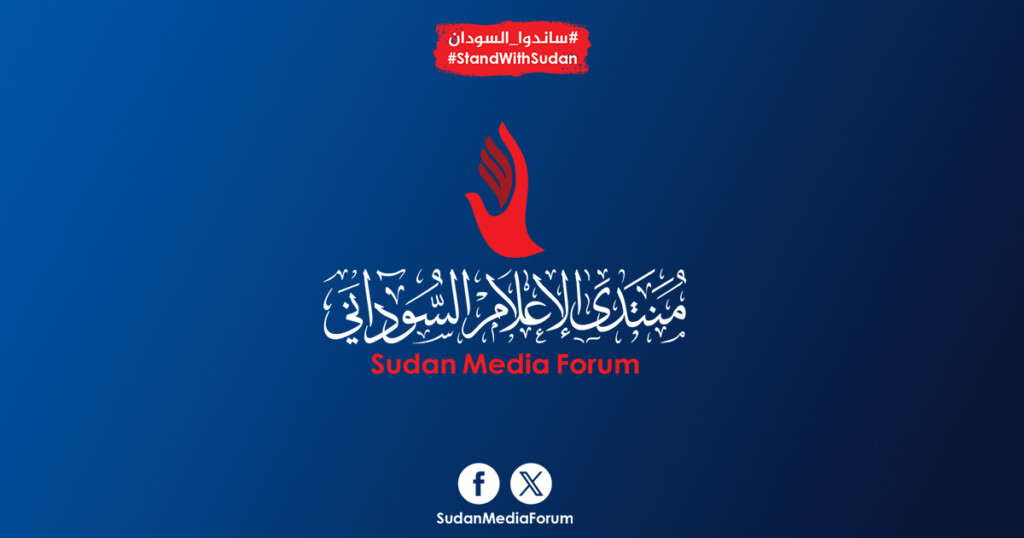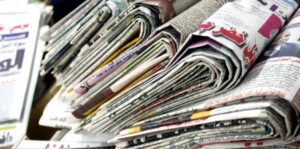Cyber attacks the latest weapon in Sudan’s war on media

File photo: Creative Commons
Sudan Media Forum*: Joint Editorial Room
Prepared and edited by Radio Dabanga
Since the Sudanese Armed Forces (SAF) and Rapid Support Forces (RSF) began clashing on April 15, 2023, independent media—particularly those operating abroad—have become critical sources of information. However, the warring parties have escalated efforts to silence these channels, seeking to enforce a total media blackout.
The warring factions in Sudan are leveraging cyber attacks against independent media they cannot reach physically. Last month, the digital newspaper Sudanile thwarted a serious hacking attempt that took down its website for a week.
According to the Sudanese Journalists’ Syndicate (SJS), the assault on independent media has intensified, with 445 journalists killed, detained, tortured, or suffering from destruction of their media facilities. As of November, 25 newspapers, more than seven television stations, and 12 radio stations have reportedly halted operations in Sudan.
At Medameek, Editor-in-chief Montaser Abdelwahid described cyber attacks as a “distinct form of war aimed at obscuring the truth”. Both sides of the conflict, he said, use extensive propaganda to distort public opinion and cover up their actions. “This war is largely a media war driven by misinformation. They are killing the truth by obstructing reports on the horrific attacks taking place.
“With tens of thousands of Sudanese websites and media channels actively spreading disinformation”, Abdelwahid said, “we need coordinated efforts to safeguard the flow of reliable information to the public.”
Cyber surveillance
Musab Baba, a media consultant and digital protection trainer working with Radio Dabanga, highlighted that digital news platforms have long been a target of government surveillance.
“Under the Al Bashir regime, authorities worked with foreign firms to silence journalists, employing cyber surveillance, hacking, and social media monitoring.” These tactics have since been adopted by SAF and RSF intelligence, who reportedly use advanced technology from Israel and Egypt and rely on security alliances in the UAE, according to Baba.
Baba explained that Sudanese cybercrime laws now serve as tools to intimidate journalists covering the conflict. “In some cases, authorities have shown journalists their own WhatsApp messages. This is clear evidence of monitoring, and demonstrates severe breaches of privacy and press freedom.”
Radio Dabanga’s social media officer, who asked not to be named due to privacy concerns, noted that Dabanga’s Facebook page frequently faces organised mass reporting campaigns, reducing its reach and engagement.
Similarly, Sudan Tribune editor-in-chief Mohamed Nagi reported recent cyber attacks aimed to intimidate the outlet. “A wave of artificial website traffic drove the site beyond capacity, temporarily shutting it down”, he said, adding that both the SAF and RSF have “mobilised media units to target outlets that deviate from their desired narratives.”
Protection
“Many cyber attacks on Sudanese media use phishing tactics, often through malicious links or files sent to administrators”, said digital rights researcher Khattab Hamad. These attacks can exploit security loopholes which, he noted, typically require significant financial and technical resources to resolve.
In response to such threats, Medameek said it established strict security protocols, including firewalls and digital protection training for staff. Editor-in-chief Abdelwahid stressed the importance of digital security measures, including regular monitoring to detect hacking attempts. He also called for coordinated training on electronic security across Sudanese media outlets.
Digital protection trainer Musab Baba advised journalists to encrypt communications through VPNs and anti-virus software to guard against surveillance. “Enabling two-factor authentication and creating strong, complex passwords are essential steps in securing online accounts.”
This report is published simultaneously on the platforms of the media and press institutions and organizations that are members of the Sudan Media Forum.

Find the Sudan Media Forum on Facebook and on X: #StandWithSudan
#SilenceKills
#الصمت_يقتل
#NoTimeToWasteForSudan
#الوضع_في_السودان_لا_يحتمل_التأجيل
#StandWithSudan
#ساندوا_السودان
#SudanMediaForum
#منتدى_الإعلام_السوداني
*The Sudan Media Forum is a coalition of independent media outlets and organisations including:
– Dabanga – Radio / TV / Online
– Sudanese Journalists Syndicate
– Sudan Tribune
– Al-Tayar newspaper
– Aljreeda Newspaper
– Sudan-Bukra Media Org
– Altaghyeer newspaper
– Ayin Network
– Alrakoba.net
– Sudanile.com
– Journalists for Human Rights – JHR – Sudan
– Female Journalists Network-Sudan
– The Democrat Newspaper
– Hala Radio – 96 FM
– Radio (PRO FM) 106.6
– Medameek newspaper
– Darfur 24
– Al-Ayam Center for Cultural Studies and Development
– Teeba Press
– Alalg Center for Press Service
– Sudanese Center for Research, Training, and Development Services
– Article Center for Training and Media Production
– mashaweer-news.com
– Sudans Reporters
– Televzyon Platform











 and then
and then